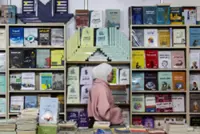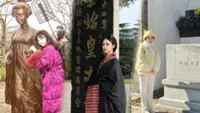A few years ago, translator Jeremy Tiang was browsing in a bookstore in Singapore when he came across an unusual book of stories.
Written in Chinese under a pen name, the book, Delicious Hunger, drew on author Hai Fan’s 13 years fighting in the jungles of Malaysia and southern Thailand as a guerrilla soldier with the Malayan Communist Party.





